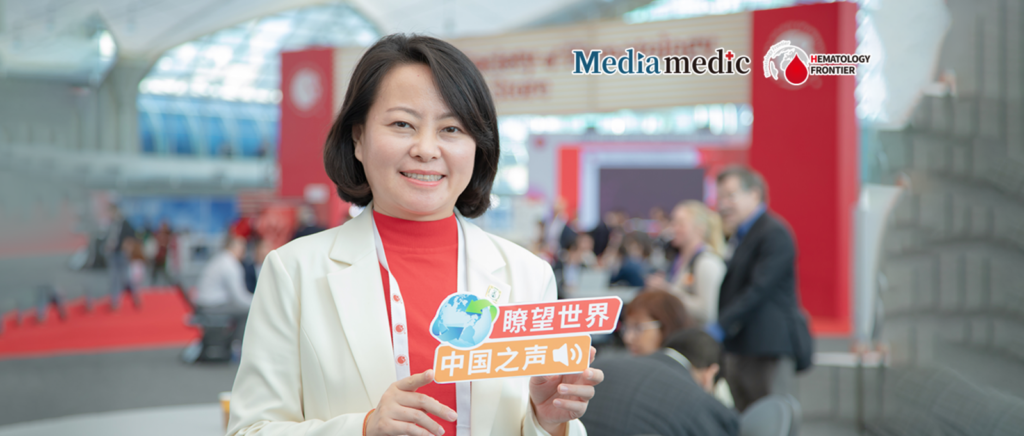
Editorial Note:The 66th Annual Meeting of the American Society of Hematology (ASH), held from December 7–10, 2024, in San Diego, USA, brought together global hematology experts to discuss the latest advancements in the field. Among the highlights was a poster presentation (P4196) by Dr. Ying Wang from the Institute of Hematology and Blood Diseases Hospital, Chinese Academy of Medical Sciences. This study explored the efficacy and safety of CD19 CAR-T therapy in adult patients with relapsed/refractory B-cell acute lymphoblastic leukemia (R/R B-ALL), demonstrating its potential to improve remission and survival rates. Hematology Frontier interviewed Professor Wang to analyze the study's key findings and the future prospects of CD19 CAR-T therapy.Hematology Frontier: With advances in medical technology, significant progress has been made in the treatment of R/R B-ALL. Could you outline the new drugs and therapeutic approaches currently available in this field?
- Dr. Ying Wang:
Immunotherapy has emerged as a transformative treatment in the R/R B-ALL field in recent years. Currently, widely used immunotherapies include bispecific antibodies, antibody-drug conjugates (ADCs), and CAR-T cell therapies, with approved products available in China. In addition, various novel immunotherapeutic agents targeting different structures and pathways are being actively investigated in clinical trials. We are optimistic that these ongoing studies will continue to deliver promising results, offering more therapeutic options for patients with R/R B-ALL.
Hematology Frontier: Your team presented the study “Key Findings on CD19 CAR-T Therapy in Chinese Adult R/R B-ALL Patients” at this year’s ASH conference (Abstract P4196). What were the most encouraging findings, and what adverse events were observed?
- Dr. Ying Wang:
At the 2022 ASH meeting, we reported Phase 2 clinical trial results of the CD19-specific second-generation autologous CAR-T product Inaticabtagene autoleucel (Nakiaolone) for R/R B-ALL patients. Among 39 patients, 32 (82.1%) achieved measurable residual disease (MRD)-negative objective response rates (ORR), including complete remission (CR) and CR with incomplete hematologic recovery (CRi). Median duration of response (DOR) and overall survival (OS) were not reached at that time. Following its approval in China in November 2023 for treating adult R/R B-ALL, we presented updated data on 48 patients at this year’s ASH meeting.
The median age of the patients was 32 years (range: 18–58), with 54.2% being male. Among them, 81.2% were refractory, and 18.8% had relapsed disease. A total of 72.9% of the patients had received two or more prior therapies, while 16.4% had undergone hematopoietic stem cell transplantation (HSCT). High-risk cytogenetic abnormalities were present in 60.4% of the patients, including Ph+, TP53 deletion/mutation, MLL rearrangements, IKZF1 mutations, and E2A-PBX1 fusions.
The primary endpoint was the ORR at three months post-infusion, with other endpoints including MRD negativity, DOR, relapse-free survival (RFS), and OS. As of April 2, 2024, with a median follow-up of 23.7 months (IQR: 6.2–23.7), 41 of 48 patients (85.4%) achieved MRD-negative ORR post-infusion, with 35 patients (72.9%) reaching CR and 6 patients (12.5%) achieving CRi. At the end of the third month post-infusion, 34 patients (70.8%) remained in CR or CRi. The median DOR for patients who underwent subsequent Allo-HSCT was 20.7 months, with a median RFS of 12.4 months. The median OS was not reached, and the estimated two-year OS rate was 55.2% (95% CI, 38.2%–69.3%). Sixteen patients survived beyond 24 months, with the longest DOR exceeding 24 months.
The most common adverse events were cytokine release syndrome (CRS) and immune effector cell-associated neurotoxicity syndrome (ICANS). CRS occurred in 89.6% of patients, with Grade 3 or higher CRS and ICANS occurring in 12.5% and 8.3% of patients, respectively. All patients recovered fully, and there were no CRS- or ICANS-related deaths.
Overall, Inaticabtagene autoleucel achieved a high MRD-negative ORR in adult R/R B-ALL patients, with 85.4% of patients attaining CR/CRi and exhibiting durable remission. It demonstrated an acceptable safety profile, with low rates of severe CRS and ICANS, making it a viable treatment option with potential long-term clinical benefits.
Hematology Frontier: Based on these findings, what are your expectations for the future of CAR-T therapy in R/R B-ALL? Will further studies explore earlier treatment applications or extended follow-up?
- Dr. Ying Wang:
Currently, newly approved drugs are primarily indicated for relapsed and refractory patient populations. However, as a clinician, I hope that these promising therapies, whether for ALL or other malignancies, can be applied earlier in the treatment course. The goal is not only to treat patients who have relapsed or become refractory but also to prevent more patients from reaching this stage. In other malignancies, such as lymphoma and multiple myeloma, CAR-T therapy has already moved to earlier lines of treatment in clinical trials. I anticipate that more studies will investigate CAR-T cell products in MRD-positive ALL patients, as well as consolidation therapies after first-line treatment.
With the publication of additional data, we can continue to optimize treatment paradigms, allowing CAR-T therapy to intervene earlier in the treatment process. This would improve treatment outcomes, reduce relapse rates, and ultimately enhance patient prognoses.
About Dr. Ying Wang
Institution: Blood Diseases Hospital, Chinese Academy of Medical Sciences
Title: Chief Physician, PhD, and Doctoral Supervisor
Roles: Director of the Immune Cell Therapy Center; Expert in clinical and basic leukemia research
Professor Wang is a key figure in hematology and oncology in China, serving on multiple committees and editorial boards. Her work focuses on advancing treatments for leukemia through innovative immunotherapies and cell-based strategies.


